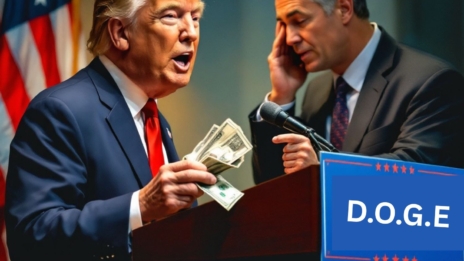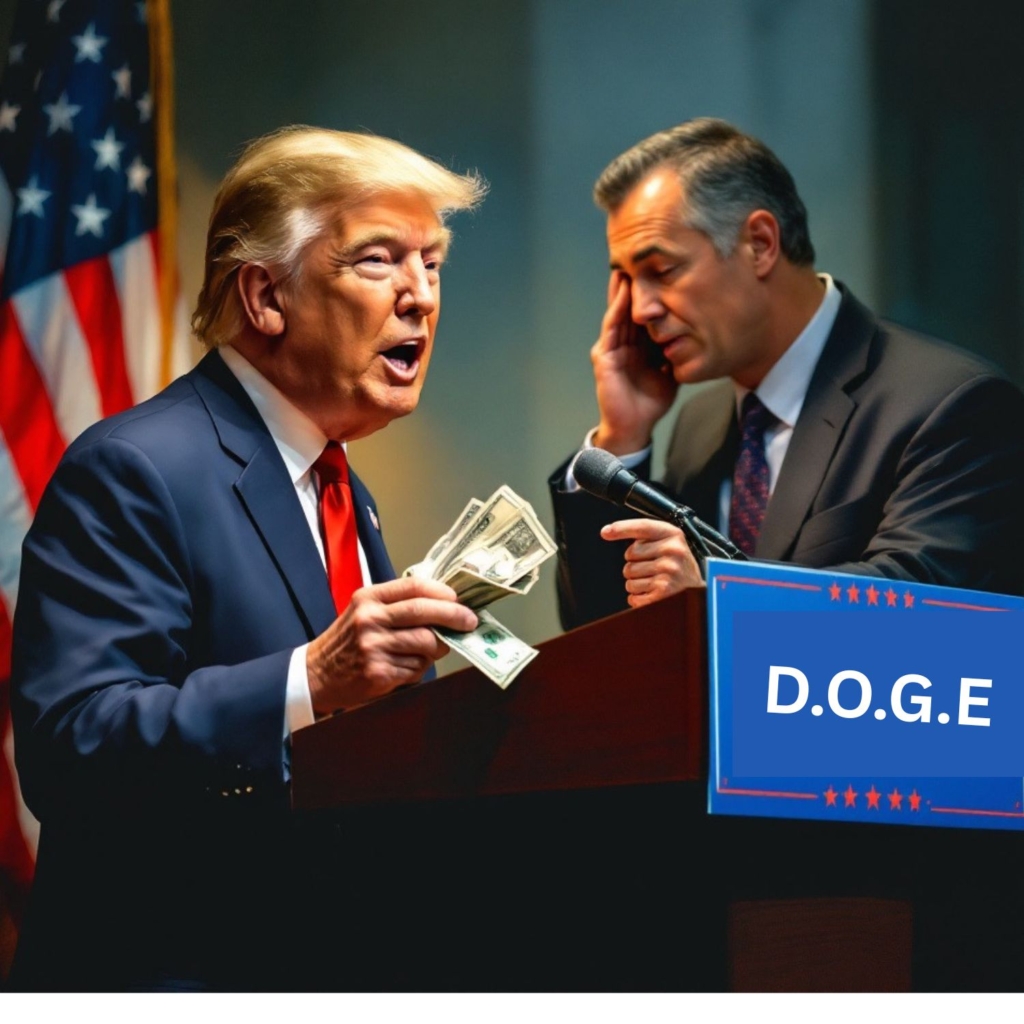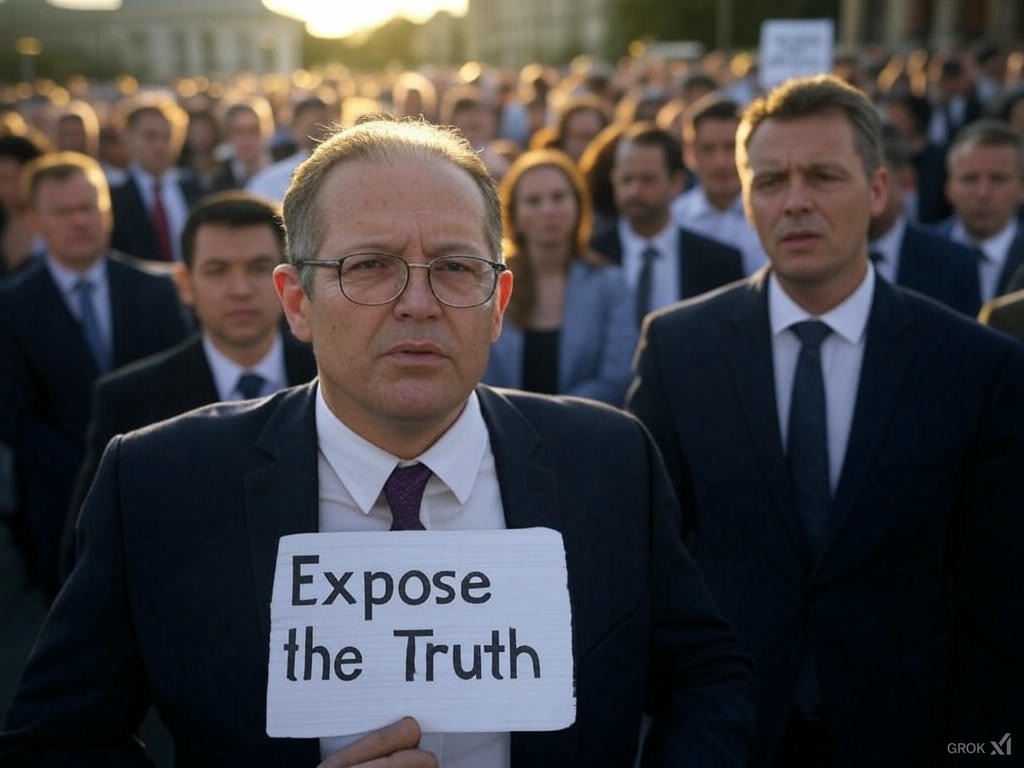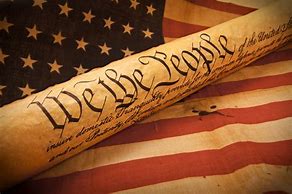
Corruption: Democratic Media’s Corrupt Approach for accountability

Ignoring Public Concerns on Corruption
The Democratic Party-controlled media has come under fire for allegedly disregarding the American public’s concerns regarding corruption. Critics argue that mainstream outlets routinely downplay significant corruption stories, opting to focus on narratives that align with their political bias. This selective reporting raises questions about the media’s adherence to journalistic integrity and its role in a democratic society. As trust in the media erodes, many citizens feel their concerns about corruption are dismissed, hindering open dialogue necessary for a functioning democracy.
Impact on Trust and Credibility

The lack of balanced coverage on corruption issues has led to a decline in credibility for several media outlets. According to surveys, public trust in media is at an all-time low, with many Americans perceiving news organizations as mouthpieces for political agendas rather than independent sources of information.
This perception is particularly pronounced in discussions surrounding corruption in politics, where individuals feel that definitive evidence of wrongdoing is often ignored or minimized in favor of more sensationalist or politically favorable stories. The media’s failure to adequately address public anxieties on such critical matters can undermine its role as a pillar of democracy.
Voices from Industry Experts and Advocates
Industry experts and advocates express concern over the media’s approach to covering corruption. Many emphasize that a robust democracy depends on transparent reporting and accountability. They argue that when media entities prioritize political alignment over factual accuracy and fairness, it compromises their credibility and the public’s informed engagement in political discourse.
Public relations professionals note that enhancing accountability in media practices is crucial for restoring public faith in journalism and encouraging informed citizen engagement in political processes.
Actions by Trump Administration and Corruption

Cessation of Key Investigations
The Trump administration’s actions regarding corruption investigations have drawn significant scrutiny. In recent months, several pivotal investigations were either scaled back or ceased entirely, raising alarm among anti-corruption advocates. Industry experts claim these actions may create an environment where corruption is not only tolerated but normalized. Critics assert that the administration’s decisions to halt investigations into corrupt practices undermine the accountability mechanisms that were established by previous administrations to combat political corruption effectively.
Recommendations from Legal Experts
Legal experts suggest that the current trajectory of corruption enforcement poses grave risks to democratic norms. They recommend a renewed commitment to anti-corruption statutes and protections for whistleblowers to ensure that public officials are held accountable.
Notably, experts highlight the importance of enforcing laws like the Foreign Corrupt Practices Act and the Foreign Agents Registration Act, which were designed to combat corruption both domestically and internationally. The perceived weakening of these laws exacerbates concerns about rampant corruption within political circles.
Historical Context of Anti-Corruption Measures
Historically, both Republican and Democratic administrations have enacted various measures to combat corruption.
However, recent shifts in policy under the Trump administration point to an unsettling trend toward leniency for corrupt practices. Critics argue that this shift not only erodes the legal framework that supports accountability but also sends a harmful message to potential wrongdoers: that violations may not lead to consequences. This historical context underscores the importance of bipartisan support for anti-corruption measures, which have proven vital to maintaining public trust in government institutions.
Public Figures Call for Accountability
Zachary Levi’s Perspective on Leadership
In a notable commentary, actor Zachary Levi has called for greater accountability in leadership, emphasizing that corruption transcends political affiliation. Levi’s insights reflect a growing sentiment among public figures that the time for increased integrity and ethical behavior in politics is overdue. He argues that leaders, regardless of their political background, must elevate their standards of accountability and prioritize the public’s interests above political gain.
Integrity Across Political Divides
Levi’s assertion that “corruption does not know a party” resonates with many who advocate for a more unified approach to tackling corruption across political divides. His perspective aligns with the idea that all leaders, regardless of their affiliation, ought to uphold principles of integrity and transparency. This call for cross-party accountability seeks to foster a more insightful discussion on corruption, urging Americans to demand equitable standards of behavior from all elected officials.
Demand for Accountability from Leaders
The urgency for accountability has echoed throughout various spheres, with numerous public figures advocating for concrete actions against corruption. Many emphasize that citizens should hold their leaders responsible for any malfeasance and demand more from their representatives. This demand comes amid rising awareness that unchecked corruption only serves to undermine democratic processes and public trust further.
Partisan Perspectives on Corruption Enforcement
Republican Claims of Investigative Bias
Republicans have been vocal in their claims that investigations into corrupt practices have disproportionately targeted their party’s members, effectively weaponizing corruption enforcement for political gain. They assert that high-profile investigations into former President Trump and other Republican officials reflect a broader pattern of bias in the judicial and media landscape. This has bred further division in the political arena, leading Republicans to argue for a reevaluation of how investigations and prosecutions are conducted.
Critique of Weakened Corruption Laws
Conversely, critics—including many legal experts—contend that weakening corruption laws only exacerbates the issues that both parties face. They argue that the dilution of these laws poses risks not only to individual politicians but also to the political landscape at large, allowing unethical behavior to flourish unchecked. The resulting environment fosters suspicion and disillusionment among voters, complicating efforts to engage the public in meaningful political discussions.
Historical Enforcement Under Different Administrations
The history of corruption law enforcement reveals that both parties have contributed to the landscape of political accountability. Each administration has faced its own challenges regarding corruption, yet bipartisan support for enforcement measures has historically proven effective. Recent trends suggest a deviation from this support, with both parties now seeking advantages from perceived weaknesses in enforcement. This partisanship raises questions about whether a united front against corruption can be pieced together in the contemporary political atmosphere.
Cultural Impact on Corruption Awareness
Media Role in Shaping Public Opinion
The media plays a critical role in shaping public perception of corruption and political integrity. However, many critics argue that its current narratives often downplay corruption or contribute to misinformation, characterized as “fake news.” By failing to adequately cover significant corruption allegations, media coverage risks creating an environment where the public becomes desensitized to political malfeasance. This undermines the media’s essential role in fostering accountability and informed decision making, as citizens rely on accurate information to guide their opinions.

The Importance of Continuous Dialogue
Engaging in continuous dialogue about corruption and its implications for democracy is crucial. Public conversations must prioritize transparency and integrity, regardless of political affiliation. Efforts to combat corruption require input from various stakeholders, including media, citizens, and political leaders. Sustained discussions can help cultivate a culture where transparency is valued, and citizens are equipped to hold their leaders accountable.
Celebrity Influence on Political Accountability
Celebrities like Zachary Levi (Shazam, Chuck) use their platforms to raise awareness about corruption and the need for accountability, reaching audiences that may otherwise be disengaged from political issues. Their influence can inspire the broader public to demand action and challenge corruption within their local and national governments. This intersection of culture and political accountability underscores the importance of finding a common ground in the fight against corruption, demonstrating that it transcends partisan issues and unites people in the quest for integrity.
Reference













